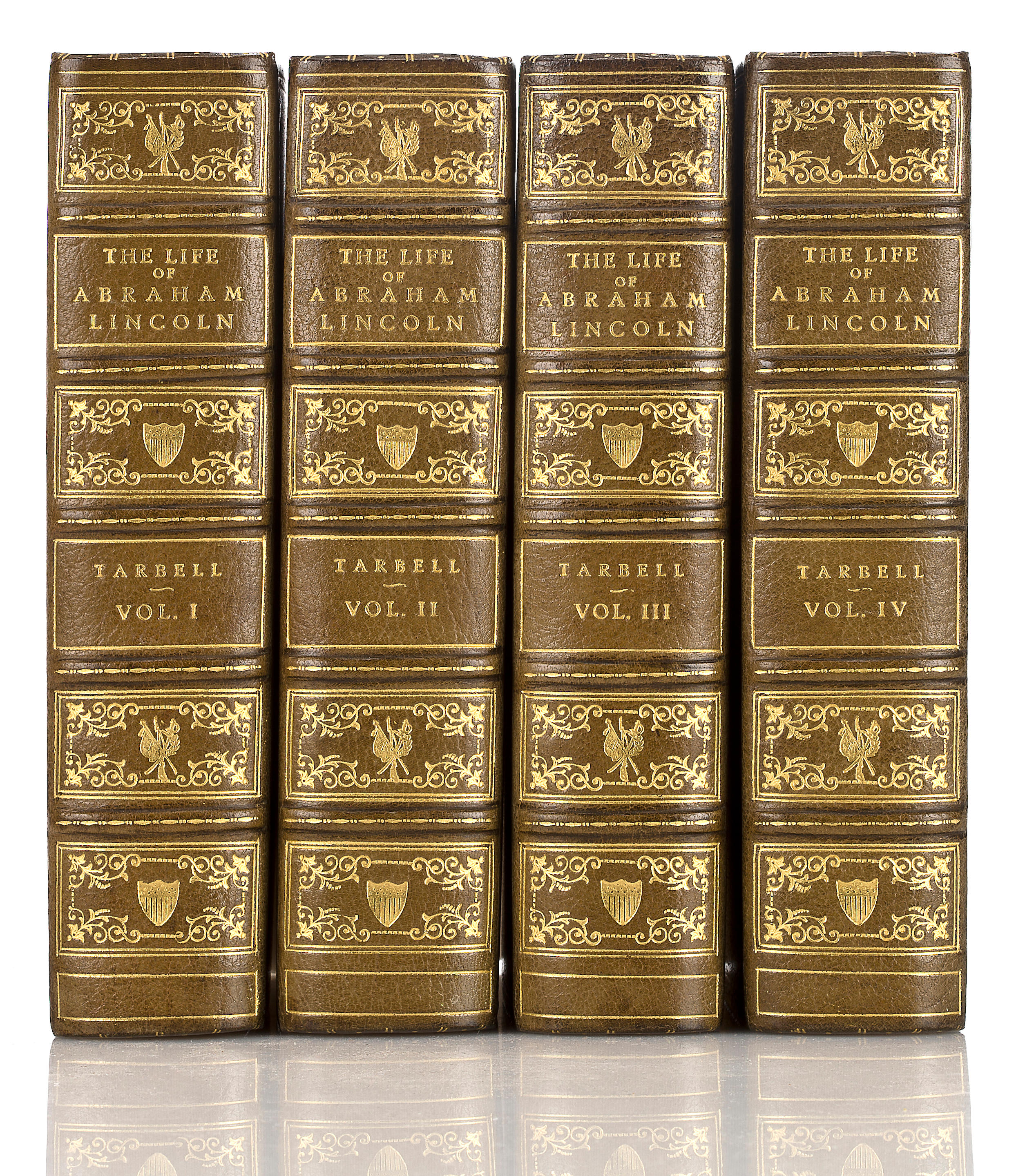SEWARD, William H. Partially printed document signed ("William H. Seward"), as Secretary of State, Washington, 2 February 1865. Certified copy of the Joint resolution of Congress...submitting to the legislatures of the several States a proposition to amend the Constitution of the United States..." 3 pages, 4to and folio, printed on Department of State stationery, bound at side with blue ribbon and with paper seal (cracked and faded) in lower left corner . "NEITHER SLAVERY NOR INVOLUNTARY SERVITUDE...SHALL EXIST WITHIN THE UNITED STATES": SEWARD TRANSMITS THE 13TH AMENDMENT FOR RATIFICATION If Antietam and Lincoln's announcement of the Emancipation Proclamation in 1862 represented (to borrow Churchill's phrasing) "the end of the beginning" then the passage of the 13th Amendment represented "the beginning of the end" of the long, bloody Civil War. Here, Seward transmits the amendment to the states for ratification: "1. Neither slavery nor involuntary servitude, except as a punishment for crime whereof the party shall have been duly convicted, shall exist within the United States, or any place subject to their jurisdiction. 2. Congress shall have power to enforce this article by appropriate legislation." Immediately after Seward signed this, he set out for Hampton Roads, Virginia, where a Confederate delegation of Alexander Stephens, John A. Campbell and R. M. T. Hunter had been halted by Union troops, forbidden to go all the way to Washington. Seward and Lincoln agreed to meet them in Virginia, aboard the River Queen . The President arrived shortly after Seward on the night of the 2nd. The Southerners hopes to strike a deal for a favorable reunion of the two warring sections, or at least an armistice. They broached a crackpot scheme of North and South joining together for a war to drive France out of Mexico. Lincoln rejected it out of hand. So too the idea of an armistice. The rebels had to lay down their arms, Lincoln told them, disband their forces, and recognize again the supremacy of Federal authority before the fighting could stop. Someone on the Confederate side raised the idea of compensation for slave owners. Perhaps this was the only real goal the Richmond representatives hoped to obtain from the conference. But Lincoln shocked them with the news that the 13th Amendment was already on its way to the states for ratification--and it contained no provision at all for compensating former slave owners. Indeed, seven states ratified the amendment that very day! Eighteen would do so by the end of February, and the reconstructed Southern state governments would complete the ratification process by 6 December 1865. Lincoln had long been an advocate of compensated emancipation, and even made one more try at it after the Hampton Roads conference. Paying $400 million to the former masters would equal the cost of another three months of fighting, he told his Cabinet, a small price to pay to end the war. But his colleagues thought Congress would never go along with it--and neither would the Southerners. Lincoln reluctantly agreed and dropped the idea. Everyone seemed to sense that a final, absolute resolution of the problem was close at hand, on the battlefield, and the unequivocal language of the Amendment seemed to reflect that. The limited war to crush the rebellion that began in 1861 had become by 1865 a total war for the restoration of the Union conditioned on the abolition of slavery.
SEWARD, William H. Partially printed document signed ("William H. Seward"), as Secretary of State, Washington, 2 February 1865. Certified copy of the Joint resolution of Congress...submitting to the legislatures of the several States a proposition to amend the Constitution of the United States..." 3 pages, 4to and folio, printed on Department of State stationery, bound at side with blue ribbon and with paper seal (cracked and faded) in lower left corner . "NEITHER SLAVERY NOR INVOLUNTARY SERVITUDE...SHALL EXIST WITHIN THE UNITED STATES": SEWARD TRANSMITS THE 13TH AMENDMENT FOR RATIFICATION If Antietam and Lincoln's announcement of the Emancipation Proclamation in 1862 represented (to borrow Churchill's phrasing) "the end of the beginning" then the passage of the 13th Amendment represented "the beginning of the end" of the long, bloody Civil War. Here, Seward transmits the amendment to the states for ratification: "1. Neither slavery nor involuntary servitude, except as a punishment for crime whereof the party shall have been duly convicted, shall exist within the United States, or any place subject to their jurisdiction. 2. Congress shall have power to enforce this article by appropriate legislation." Immediately after Seward signed this, he set out for Hampton Roads, Virginia, where a Confederate delegation of Alexander Stephens, John A. Campbell and R. M. T. Hunter had been halted by Union troops, forbidden to go all the way to Washington. Seward and Lincoln agreed to meet them in Virginia, aboard the River Queen . The President arrived shortly after Seward on the night of the 2nd. The Southerners hopes to strike a deal for a favorable reunion of the two warring sections, or at least an armistice. They broached a crackpot scheme of North and South joining together for a war to drive France out of Mexico. Lincoln rejected it out of hand. So too the idea of an armistice. The rebels had to lay down their arms, Lincoln told them, disband their forces, and recognize again the supremacy of Federal authority before the fighting could stop. Someone on the Confederate side raised the idea of compensation for slave owners. Perhaps this was the only real goal the Richmond representatives hoped to obtain from the conference. But Lincoln shocked them with the news that the 13th Amendment was already on its way to the states for ratification--and it contained no provision at all for compensating former slave owners. Indeed, seven states ratified the amendment that very day! Eighteen would do so by the end of February, and the reconstructed Southern state governments would complete the ratification process by 6 December 1865. Lincoln had long been an advocate of compensated emancipation, and even made one more try at it after the Hampton Roads conference. Paying $400 million to the former masters would equal the cost of another three months of fighting, he told his Cabinet, a small price to pay to end the war. But his colleagues thought Congress would never go along with it--and neither would the Southerners. Lincoln reluctantly agreed and dropped the idea. Everyone seemed to sense that a final, absolute resolution of the problem was close at hand, on the battlefield, and the unequivocal language of the Amendment seemed to reflect that. The limited war to crush the rebellion that began in 1861 had become by 1865 a total war for the restoration of the Union conditioned on the abolition of slavery.















Testen Sie LotSearch und seine Premium-Features 7 Tage - ohne Kosten!
Lassen Sie sich automatisch über neue Objekte in kommenden Auktionen benachrichtigen.
Suchauftrag anlegen